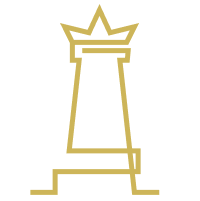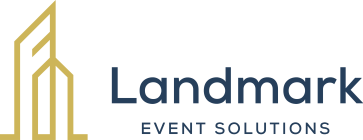Fractional Event Director
Strategic Event Leadership—Without Hiring Full-Time
Fractional Event Leadership
When events are critical to your organization but hiring a full-time senior event leader doesn’t make sense, you need experienced leadership you can bring in when it matters most.
As your Fractional Event Director, Sarah Lopes integrates directly into your team to provide strategic oversight, decision-making support, and structure across your event portfolio. This is not execution-only support. It’s leadership that ensures your events are aligned to business goals, appropriately resourced, and delivered with consistency and confidence.
Sarah helps organizations move from reactive planning to intentional, repeatable event delivery—so events stop living in silos and start working as a system that supports growth, reputation, and stakeholder trust.


How Fractional Event Leadership Works
What I Do
In a fractional role, I focus on the work that internal teams often don’t have time or senior experience to lead:
Assess your current event portfolio, workflows, and planning systems
Align event goals directly to organizational and leadership objectives
Create clear frameworks, timelines, and decision-making tools
Provide oversight for high-stakes or grant-funded events, including reporting and compliance
Support leadership and cross-functional teams with clarity and accountability
Build systems that make event success repeatable, scalable, and less dependent on individuals
You get strategic direction, calm oversight, and stronger outcomes without carrying the cost or risk of a full-time hire.
What it Costs

Cost Range: What to Expect
Fractional Event Director engagements typically range from
$4,000–$9,000 per month, depending on scope and involvement.
We scope fractional support intentionally—so you get the level of leadership you actually need, without paying for capacity you don’t.

What Increases Investment?

What Keeps Costs Down?
A defined event portfolio or single flagship event
Clear internal ownership and decision-making
Short-term or advisory-focused engagements
Existing systems that need refinement, not rebuilding

The Outcome
With a Fractional Event Director in place, events become:
Most importantly, they start delivering on the reason they exist in the first place: advancing your organization’s goals.
Start Your Event Strategy Today – Limited Spaces Available
On top of that, Sarah is a great person to work with. She’s friendly, a team player, and builds strong relationships with everyone.
Frequently Asked Questions
What does a Fractional Event Director actually do week to week?
The work typically includes reviewing and setting event strategy, clarifying priorities, establishing decision frameworks, mentoring internal staff, overseeing vendors or agencies, and stepping in when execution support needs guidance. Time is spent where leadership matters most—not on tasks that are better handled by coordinators or planners.
How much time does a Fractional Event Director usually work?
Most engagements range from one to three days per week, depending on event volume, complexity, and team maturity. The goal is not constant presence—it is effective leadership at the right moments. Time can scale up or down as your needs change.
Is fractional leadership more cost-effective than hiring full-time?
Yes, for most organizations. Fractional leadership provides senior expertise without the long-term overhead of salary, benefits, and ramp-up time. It also avoids the risk of hiring too early or into an unclear role. Many organizations use fractional support as a bridge before deciding whether a full-time hire is necessary.
What happens when the engagement ends?
The goal is not dependency. A strong Fractional Event Director leaves behind better systems, stronger teams, and clearer processes. Some organizations transition into a lighter advisory role, move into an Event Ready Sprint, or confidently hire internally with a clearer job scope and expectations.
